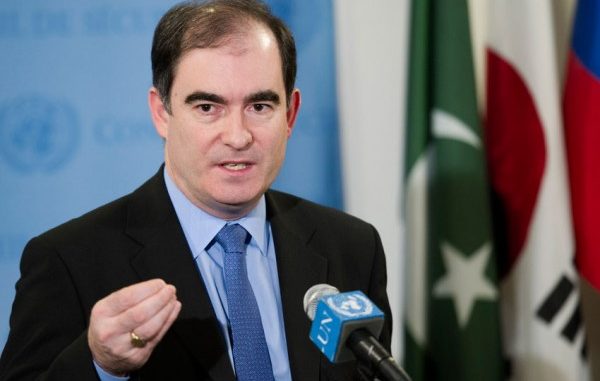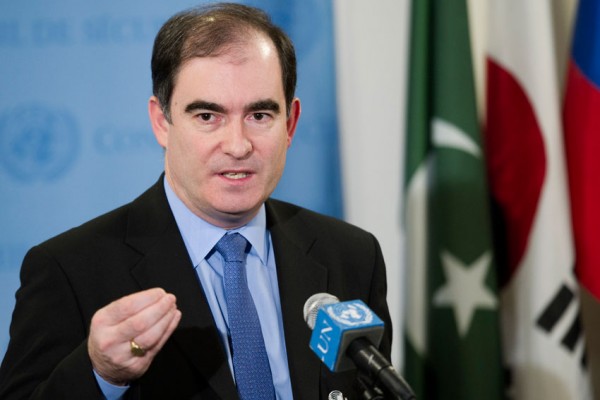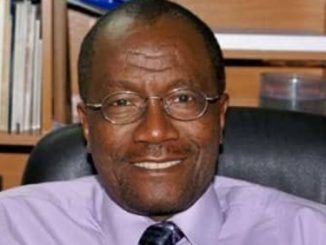

JOHN GING
As cases of Ebola continue to decline and Liberia prepares to reopen schools nationwide, UNMEER is working with UNICEF, the Ministry of Education and other partners to ensure that schools are safe. Photo: UNMEER/Aalok Kanani
“There is most definitely a fantastic combined community, national and international effort that has turned this crisis around,” John Ging, Director of Operations for the UN Office for the Coordination of Humanitarian Affairs (OCHA), told reporters at a press briefing in New York earlier today.
“But there is no room for complacency,” Mr. Ging added. “The last mile is the hardest mile. We must stay the course.”
Confirming the need for ongoing vigilance, the World Health Organization (WHO) reported today a surge in new Ebola cases this past week, ending a series of declines the agency noted when it reported that the number of new cases in the three hardest-hit countries of Guinea, Liberia and Sierra Leone recently fell below 100 for the first time in seven months.
“While remarkable progress has been made, we must not forget that it only takes one new case to start a new outbreak,” stressed Mr. Ging.
He also noted that as optimism among Ebola responders grows, a simultaneous shift towards recovery is also taking place with efforts focusing on sending children back to school and rebuilding the local economies that were gutted by the epidemic.
Mr. Ging, who recently visited countries in the Ebola-affected region to assess existing emergency coordination structure, explained to journalists that emergency health workers had undertaken “heroic” efforts in educating communities and treating Ebola patients as “human as possible.”
Above all, he said, they had been instrumental in broadcasting the mantra that “early detection, early treatment is the key to survival” despite the strident communication difficulties present in many of the West African countries.
“If you get into detection centres early, survival rates can increase and they do,” he noted, in response to questions.
In Guinea alone, communication remained a “big challenge” with only two per cent of the population owning a television. Moreover, community outreach had encountered much resistance with suspicion and fear breeding misperceptions and misinformation and fomenting, in some cases, acts of violence against the health workers.
Nevertheless, Mr. Ging continued, communities remained mobilized with children returning to school and reclaiming their futures – a key to helping these countries “get back on their feet as soon as possible.”
“This crisis has exposed weaknesses in the health services delivery for the populations in these countries,” he said, warning that Ebola would only be defeated if responders also confronted the issues that prompted the crisis.
As a result, he urged donors to remain focused on combatting the disease and maintain “the resolve to stay the course, to eliminate the virus.”
It is not a question of if West Africa will get to zero cases, but a question of when, Mr. Ging concluded.
“The number of cases has been reduced dramatically,” he said. “It has brought a sense of hope for people in the region.”



